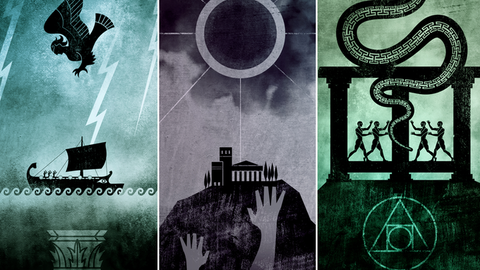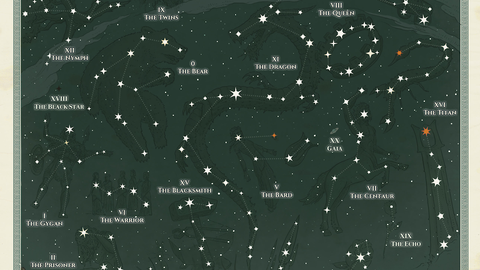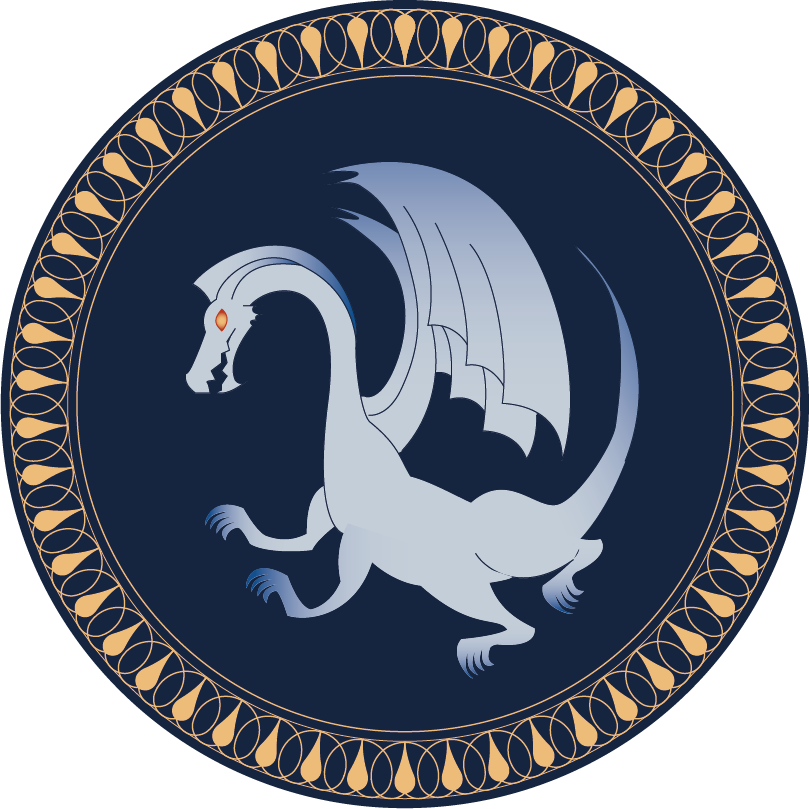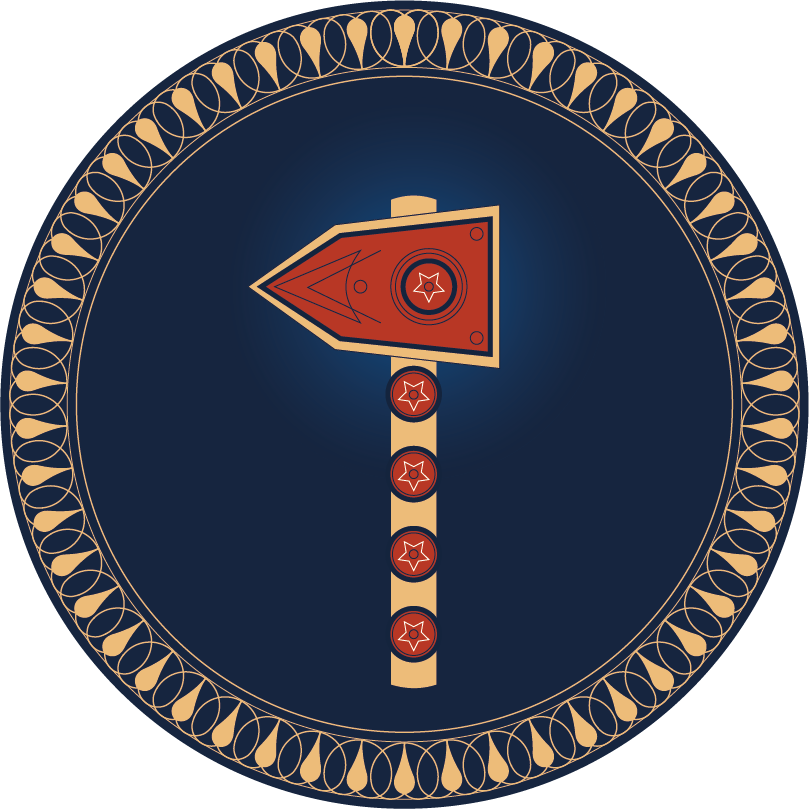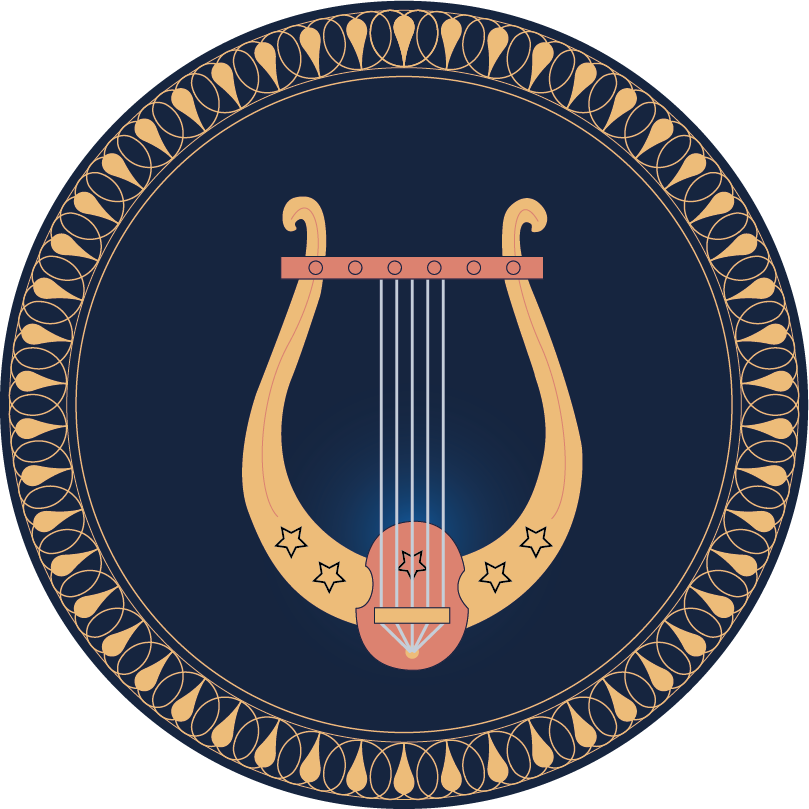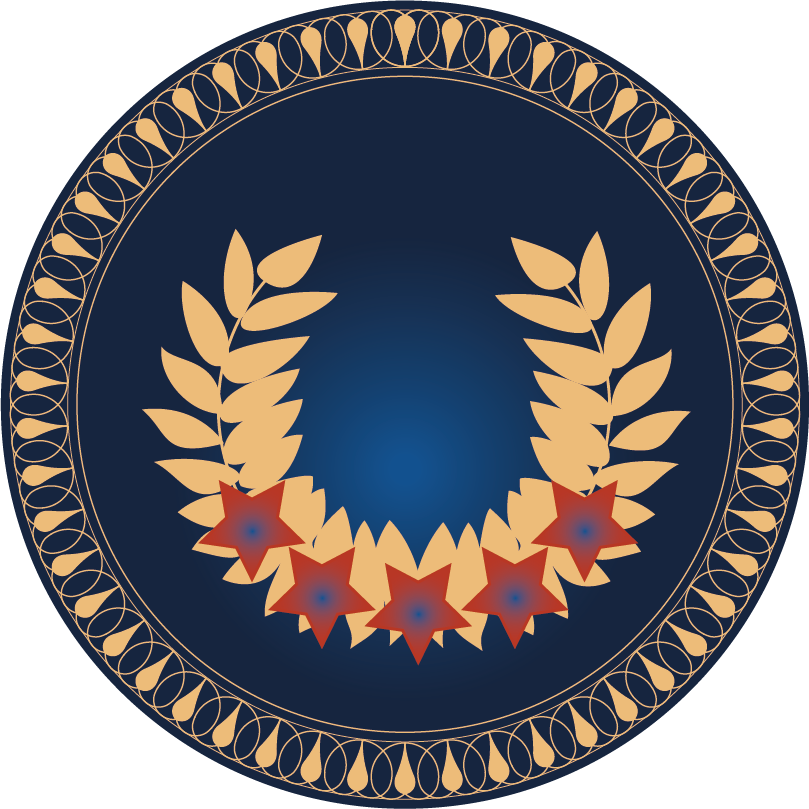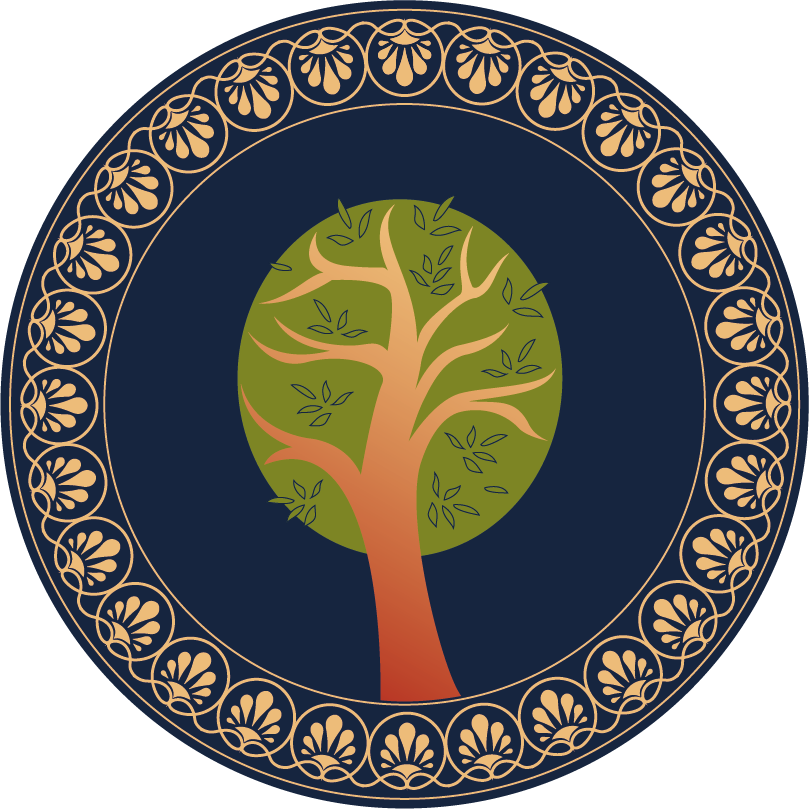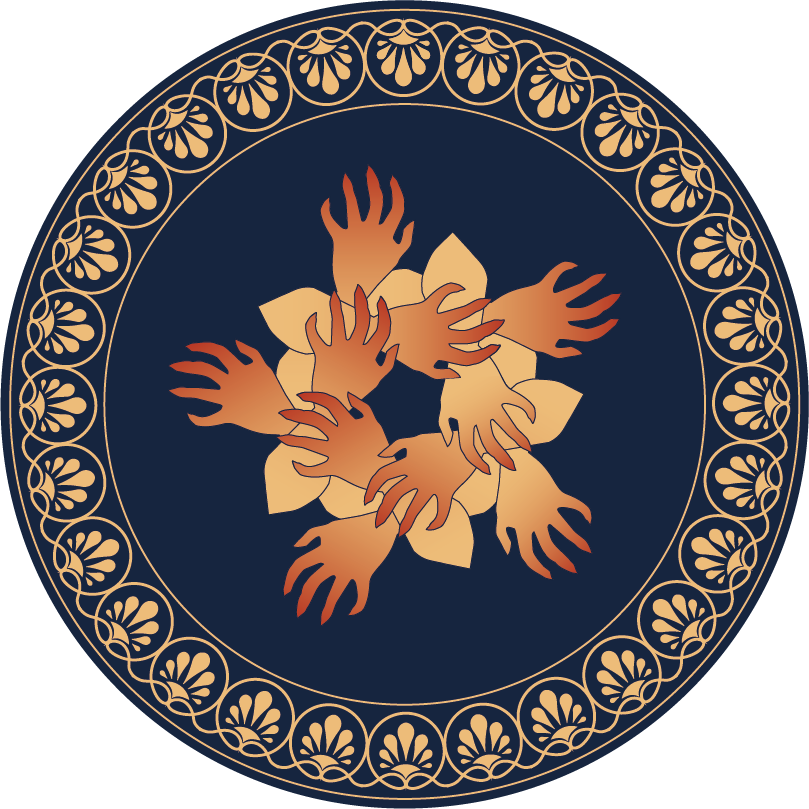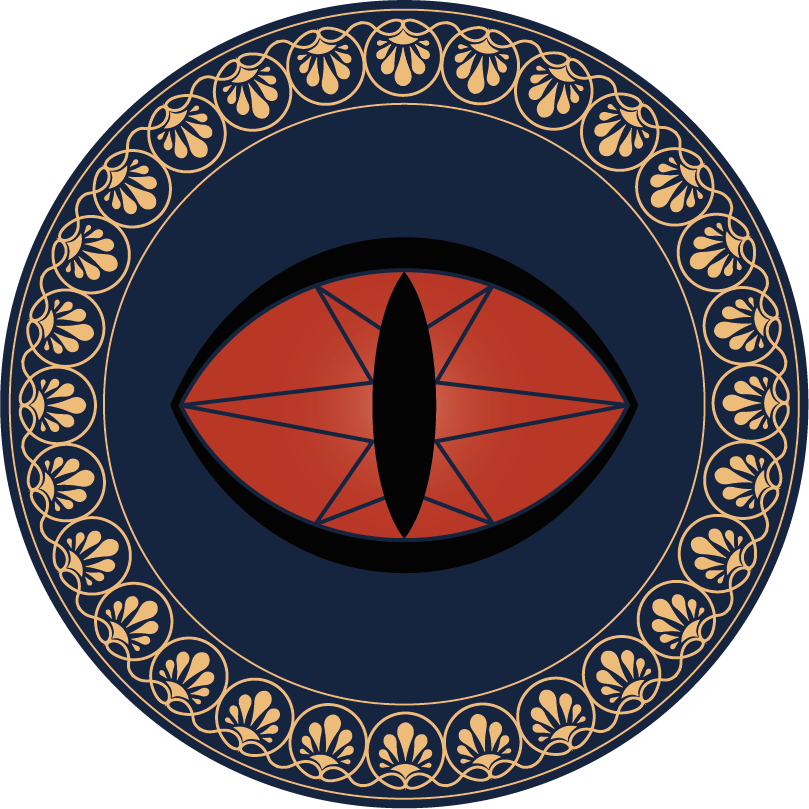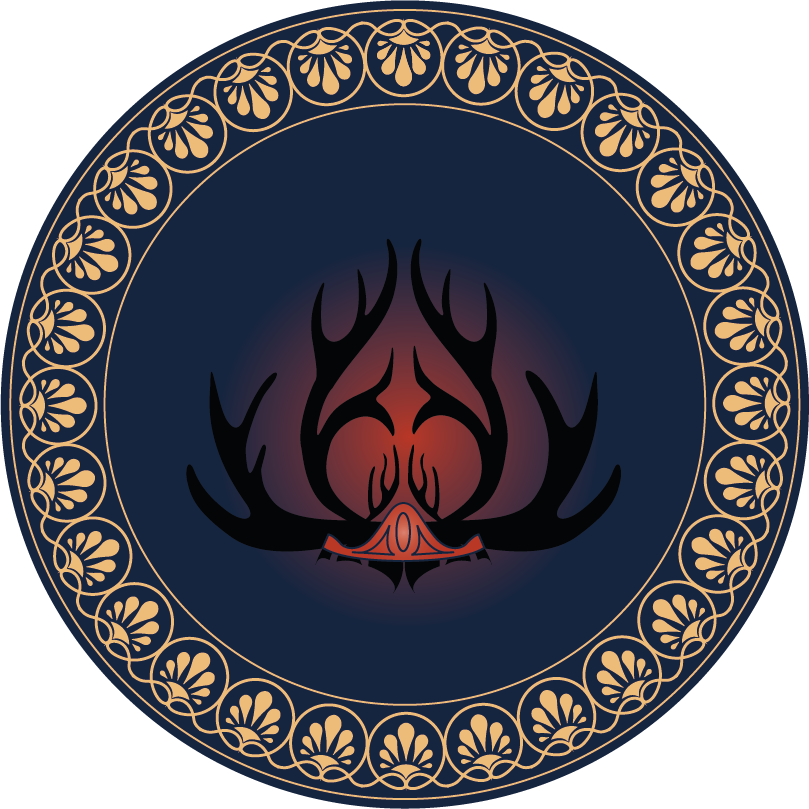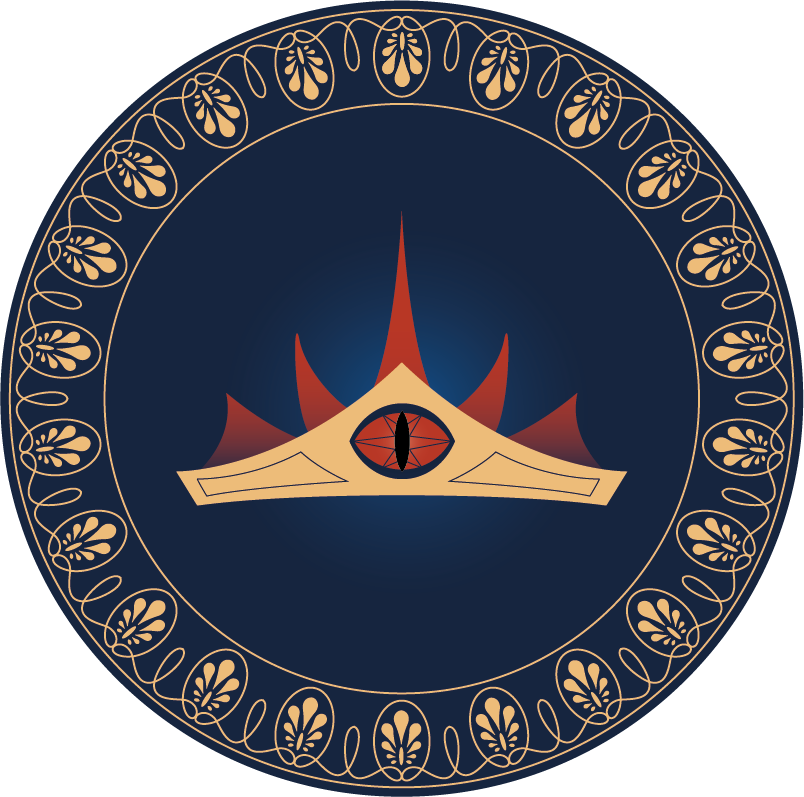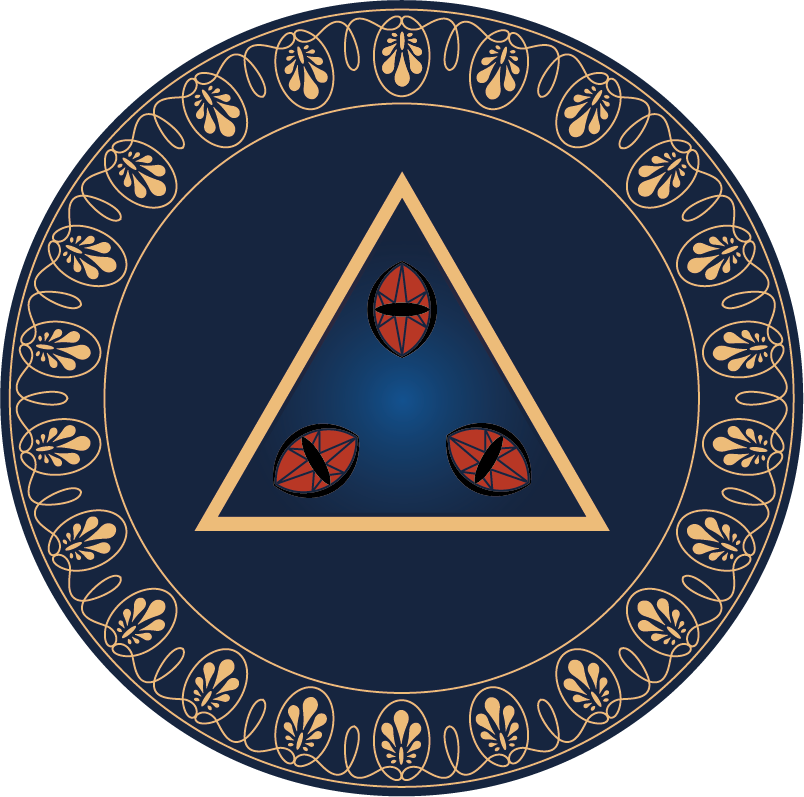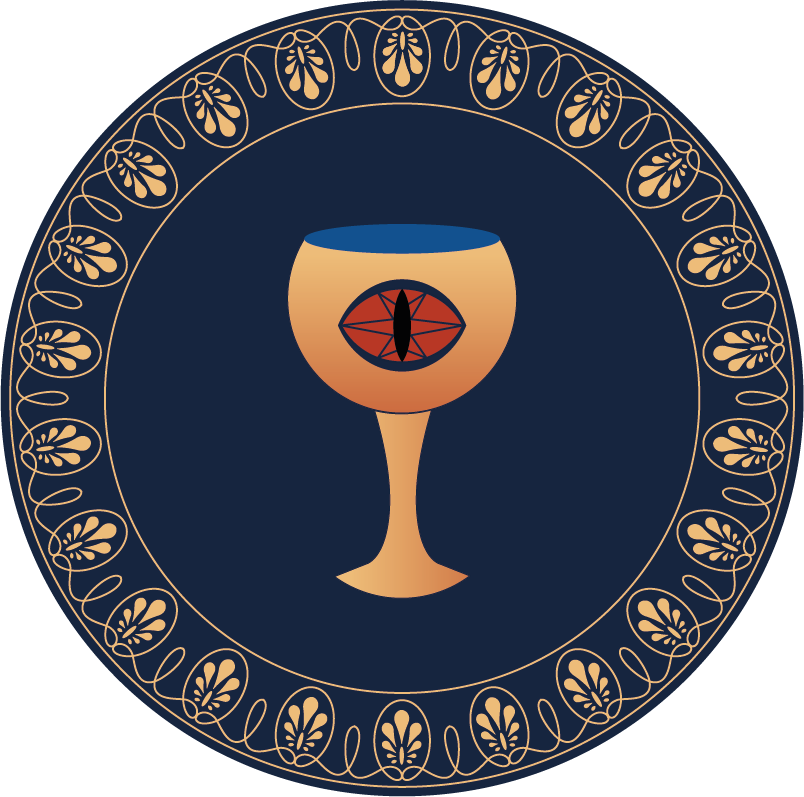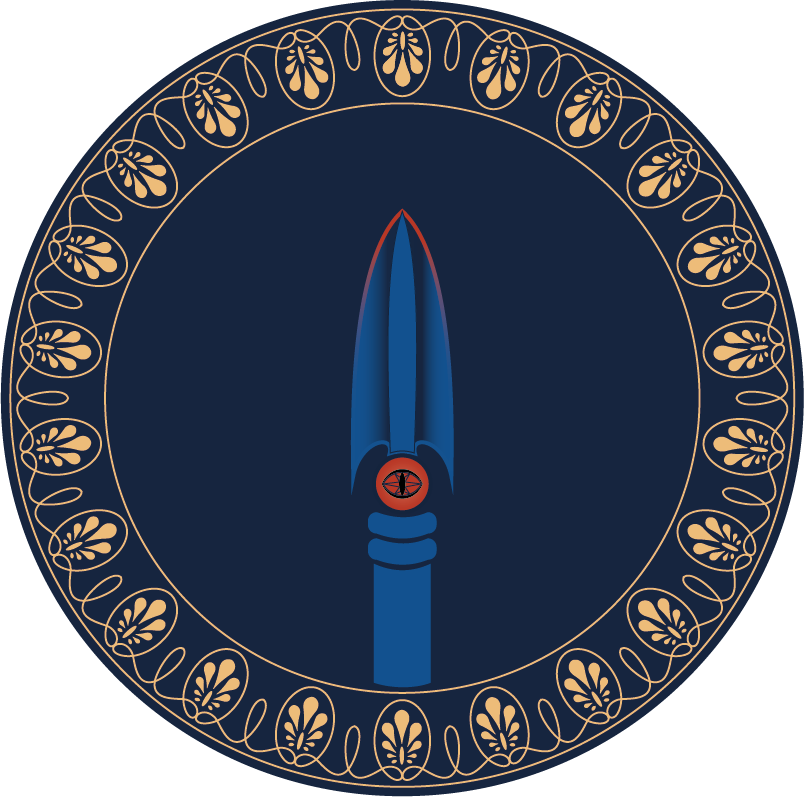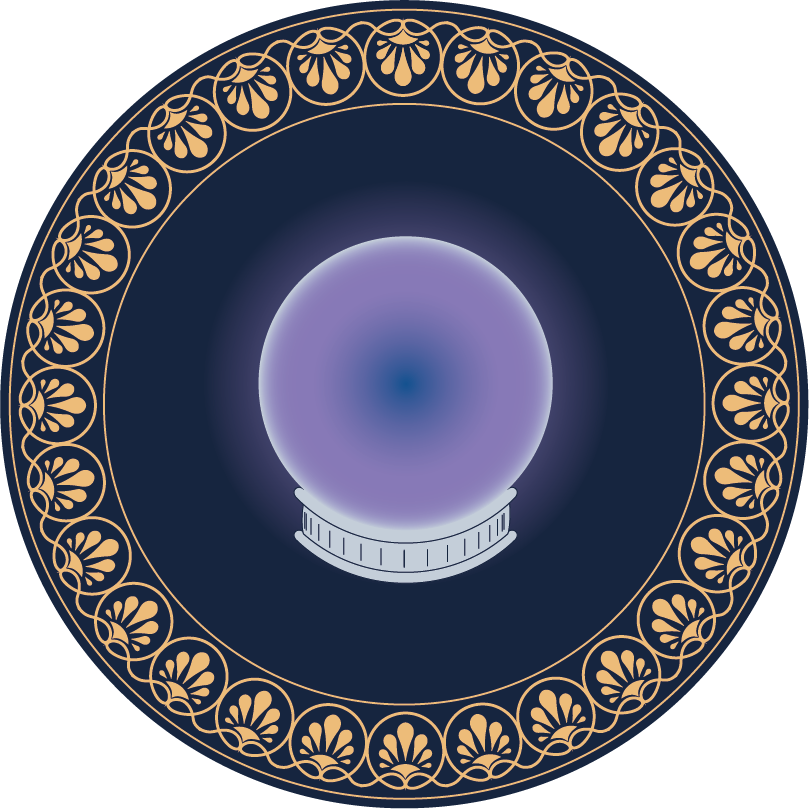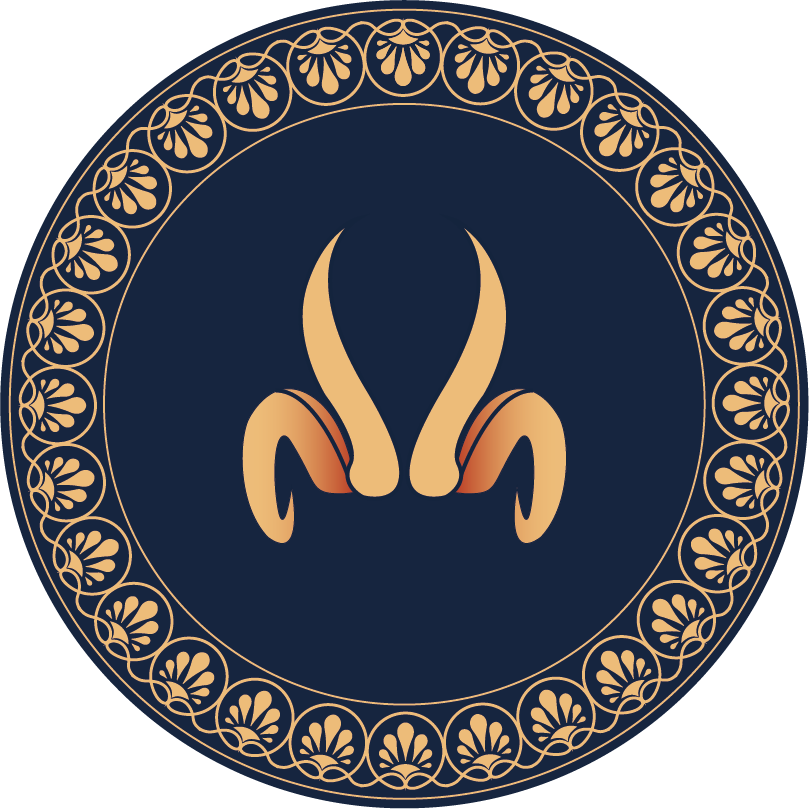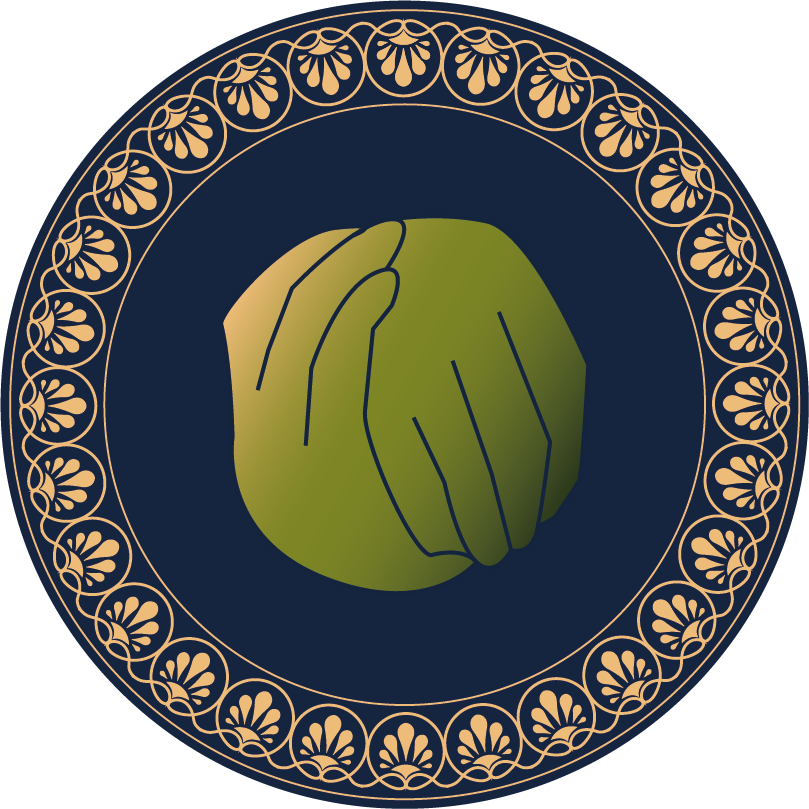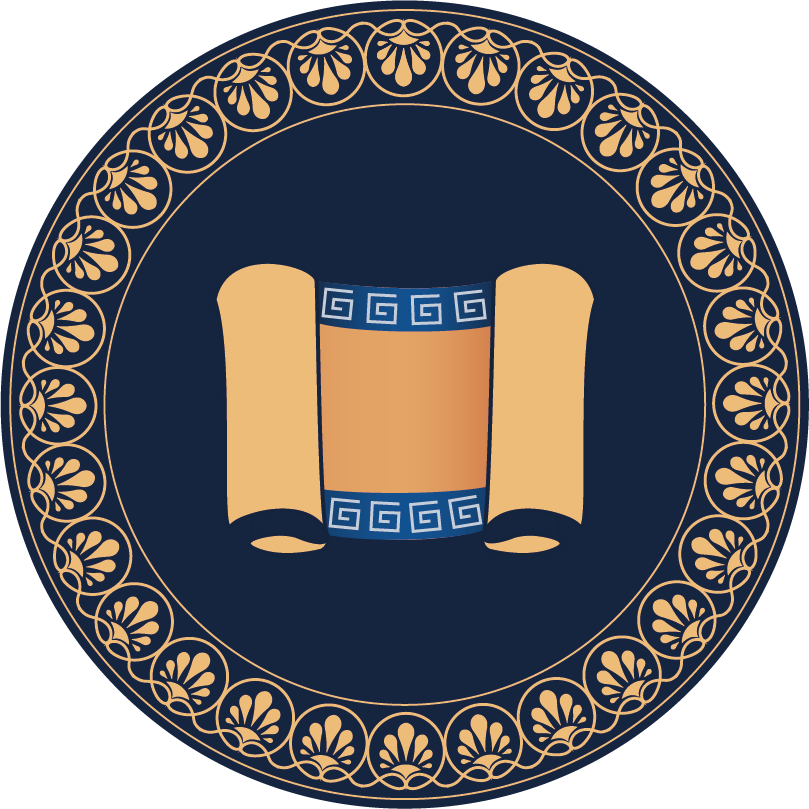The World
The Heroes
She hails from the family Sideris but has recently gotten married to Sullas Neurdagon.
- First: she stands at every inch of her seven and a half feet and seems to almost accidentally dominate nearly every space she is in.
- Second: her armour is a hodge-podge of dull and damaged parts from across Thylea, except her perfectly polished bracers.
- Third: her face is weathered and worn as if it has seen a thousand storms and twice as many fights, highlighted by the eye-patch over her scarred right eye.
Tryntia stands slightly over 5ft tall with long, thick hair that is a slightly unusual colour for a Triton, being a dark purple. Her body is slight but that of a soldiers, toned with the occasional scar from years of training and battle. Though her face is young, her eyes have been battle-hardened, to protect herself from the tragedies of war.
Her light blue skin slightly shimmers in sunlight from her scales but is only really noticeable if you're looking for it. She proudly wears traditional clothing and armour of her race, mainly things they have fashioned from the seafloor, held together by rope from sunken ships. She wears a bronze circlet to signify her bonding with Yklezion, her bronze Dragon.
- (S34+35) The Scorpion and the Centaur
- (S31+32+33) Ancient Ziggurat
- (S30) The People of the Turtle
- (S29) A Miracle for the Ages
- (S28) Past and Present Crimes
- (S27) The Heart of The World
- (S26) Into the Depths and out again.
- (S25) Attack on Yonder
- (S24) The Winners Depart
- (S23) We are the Champions
- (S22) The Great Games Begin
- (S21) Liberating the Minotaurs
- (S20) Reclaiming the Ultros
- (S19) A Wedding, A Trickster and a Ghost Ship
- (S18) The Ascent of The Colossus
- (S17) Emerging into the Light
- (S16) Knee Deep in Duty
- (S15) Meeting N' Greeting
- (S14) Breaking the Storm
- (S13) The Journey to Mytros
- (S12) The Labyrinth of Death
- (S11) Learning the Truth
- (S10) The Telamok Peaks
- (S09) The Long Journey Back
- (S08) Descending into the Forge
- (S07) Entering the Mithral Mines
- (S06) The Sacrifice
- (S05) Return To Estoria
- (S04) Demetria's Lair
- (S03) Trip To Estoria
- (S02) Seek out the Oracle
- (S01) The Corrupted Boar
- (S00) The Sour Vintage
There's no mistaking the short, winged, birdlike figure of an Aarokocra; ruffled dark grey feathers mottled with patches and smears of copper adorn the wings, head, chest, and bare arms of what seems to be a bright eyed, adolescent birdfolk.
Clothed lightly with only leather and cloth straps on the chest and cloth trousers, the only possessions that are carried seem to be at the figure's sides - a thick book and a small satchel. Standing at just under 5 feet, his head darts as he nervously scans the environment, clearly out of place in this new land.
The most striking thing about Praxos, is the bow he carries everywhere he goes. It is made of black locust wood with a green silk bowstring and a horn and an auroch leather grip.
I am Praxos, the archer, legion's bane, the fate twisted, born under the dreamer, but wide awake to the hardships of a cruel world.
He always appears kind and approachable with his hair tied back, his coat well-groomed and tail tightly braided, though his sheer size lets him cut an imposing figure. From his neck hangs a sprig of mistletoe, though closer inspection would show this to be finely carved jade, with a single berry of darkened lavender crystal.
1) Group Loot & PIETY & CRAFTING:
https://docs.google.com/spreadsheets/d/1a6Ys_Z7mqzVSXyvLm92w_xamKaj3F0UAxPZa0vjI7fg/edit?usp=sharing
2) Link to the player's guide:
https://drive.google.com/file/d/18fwvMRZATEHue-T0LQ1mpfdbjaFsPEbJ/view?usp=sharing
3) Piety Player Guide:
https://docs.google.com/document/d/1ixqxov497opi-i36Rn1KacZR4mYo9eIduhV-XZuHHIc/edit?usp=sharing4) World Primer:
5) Mithral Forge Recipes
The Rest
Thylea is a small continent surrounded on all sides by an ocean called the Forgotten Sea. The natives of Thylea are Centaurs, cyclopes, gygans, nymphs, satyr's, and other fey races. Thousands of Human settlers arrived in Thylea five hundred years ago. There are numerous languages spoken and there is a specific clothing style.
The Laws of Thylea are extremely important.
- Sacred Oaths. Oaths are taken very seriously in Thylea. The punishments for violating an oath are severe
- Mortal Curses. Breaking oaths or violating the laws of Thylea may cause you to be afflicted by dreadful curses.
- Thylean natives. Centaurs, satyrs, nymphs, and other native races live and work alongside the settler races. The peace with their many tribes is precarious.
All major events that happened in Thylea in the last 2500 years can be found --> here <--.
The Ancient Titans
Thylea is named after the mother goddess who watches over the continent. She and her husband, Kentimane the Hundred Handed, bore many children. These ancient gods form a pantheon called “the Titans.” The two most powerful of their children are:
- Sydon, Lord of Storms. He is the ancient Titan who once ruled over Thylea, long before the arrival of mortals. He seeks to dominate the land once again—to be worshipped by all mortals. He controls all the waters of Thylea, including the weather, and sacrifices must be offered to him daily.
- Lutheria, Mistress of Death. She is the sister-wife of Sydon. She has dominion over the underworld, and she seeks to corrupt mortals and capture their souls for her own amusement. In spite of this, she is honored by frequent sacrifices and wine festivals throughout the land.
The Order of the Dragonlords
For many ages, Thylea was a wilderness of centaurs, satyrs, cyclopes, and other creatures who worshipped the Titans. Mortals who came to Thylea lived in small, defenseless tribes—until the arrival of The Order of the Dragonlords. The Dragonlords were an order of heroic, dragon-riding mortals who came to Thylea five centuries ago. They initiated the First War against the Titans and defeated their armies. Most of The Order of the Dragonlords and their dragons were killed during this conflict
The Five Gods
When all seemed lost, the mortals of Thylea were saved by the sudden appearance of the Five Gods, who walked the land in mortal guise. They forced the Titans into a temporary truce, called the Oath of Peace.
• Volkan, God of Forges
• Kyrah, Goddess of Music
• Mytros, Goddess of Dawn
• Pythor, God of Battle
• Vallus, Goddess of Wisdom
The Oath of Peace
The Oath of Peace has prevented open warfare with the Titans for five hundred years. But now, the truce is ending. The power of the Five Gods wanes, and the Titans prepare to wage war upon mortals once again.
The Oracle's Prophecy
The Oracle is a water nymph named Versi. She is Thylea's most famous prophet, and she has recently had a terrifying vision of the future. She has called for a band of mortal heroes to join together to confront the Titans.
The Mortal Kingdoms
There are three major kingdoms in Thylea.
The Kingdom of Mytros was the first kingdom founded by the Dragonlords. It is the largest city in all of Thylea and the center of commerce, religion, and politics. The ruler of Mytros is King Acastus, one of the last descendants of the Dragonlords.
The Kingdom of Estoria is an ancient stronghold that has resisted centuries of attacks by centaur's, cyclopes, manticores, and other dangers which thrive in the steppes. The ruler of Estoria is King @pythor, the God of Battle.
The Kingdom of Aresia has long been a rival to the
kingdom of Mytros. The two cities have been engaged
in dozens of wars over the last several hundred years,
which are collectively known as the Aresian campaigns.
The ruler of Aresia is Queen Helen.
The Heroes of Thylea
You are one of the heroes who has been called by the
Oracle's prophecy to save the world from the tyranny
of the Titans. Whatever your personal background, be you a native or an outsider you
know that you are destined for greatness.
All of Thylean history lies here. Ranging from "The Dark Ages", a time before mortals had the far-reaching civilisations that now bless the land, to the Oath of Peace was sworn and hostilities ended, to ofcourse, to the centuries since then, also known as "The Golden Age" or "The time of Mortals". Be aware that different cultures have different opinions on what actually happened in our long storied histories and there is some objection on the times before out great Kingdoms being called "The Golden Age" but as this work has been researched and penned by the esteemed Academy of Mytros you reader can be assured that it is entirely correct.
- Chief Historian Panagiotis Ololathos
Every island is attuned with a particular constellation in the night sky. By selecting a constellation on the device, you may chart a course to its associated island.
More Info
The Five Gods
The Five Gods are widely celebrated as the settlers’ favoured gods. With the exception of Mytros, they are not heaven-dwelling deities but familiar faces who walk among their people. They have been known to take mortal husbands and wives, rule over cities, and sire demi-god children. They helped The Order of the Dragonlords and the mortal races to defeat Sydon and Lutheria during the First War.
Name | Title | Symbol | Domains | Alignment |
Mytros | The Goddess of Dawn | Life, Light | LG | |
Volkan | The God of Forges | Forge | NG | |
Pythor | The God of Battle | War | CG | |
Kyrah | The Goddess of Music | Trickery, Magic | CG | |
Vallus | The Goddess of Wisdom | Knowledge, Magic | LG |
The Ancient Titans
The Titans are divine powers native to Thylea. They have existed since the dawn of time. You can read the The Legend of Creation and The Birth of the Titans for more information.
Name | Title | Symbol | Domains | Alignment |
Thylea | Great Mother of All | Nature | TN | |
Kentimane | The Hundred Handed | Destruction | TN | |
Sydon | The Lord of Storms | Tempest, Sea | TN | |
Lutheria | The Lady of Dreams | Dreams, Death | CE |
The New Titans
Powerful Titanborn that roam modern Thylea. Named after the The Lost Titans, implied to be done by Sydon as an insult, they are extremely powerful creatures, each with it's own domain of expertise. With the exception of Versi who has allied with The Five Gods the rest of the new Titans serve Sydon and Lutheria.
Name | Title | Symbol | Domains | Alignment |
Chalcia | The Best | Tempest, War | NE | |
Goloron | The Mad | Destruction | CN | |
Hergeron | The Cunning | Knowledge, Tempest | LE | |
Talieus | The Proud | Trickery | CE | |
Yala | The Powerful | War | LN | |
Versi | The Oracle | Prophecy | TN |
The Lost Titans
There used to be more Titans but they have been lost by the passage of time. Certain individuals such as Eurytus and Versi still know of their existence however.
Name | Title | Symbol | Domains | Alignment |
Yala The First | Titan of Beauty | Life, Trickery | CN | |
Chalcia The First | Titan of Swiftness | Trickery | CN | |
Hergeron The First | Titan of Strength | War | CN | |
Talieus The First | Titan of Crafting | Forge | LN | |
Goloron The First | Titan of Wisdom | Knowledge | LN | |
Versi The First | Titan of Prophecy | Prophecy | TN |
/src/characters/F3LNd1e3HfESb5WKJNxaA9SLbbFv9402hthRwjG7.png)
/src/characters/F3LNd1e3HfESb5WKJNxaA9SLbbFv9402hthRwjG7.png)
/src/characters/ZlCcyfAoC6XbT13S1AE2Oy4YzU4qqr3QQjsP86Q3.png)
/src/characters/ZlCcyfAoC6XbT13S1AE2Oy4YzU4qqr3QQjsP86Q3.png)
/src/characters/JMgc5zjjRY14Er1J7qJYNYEquNn34yzCnQt2UjpL.png)
/src/characters/JMgc5zjjRY14Er1J7qJYNYEquNn34yzCnQt2UjpL.png)

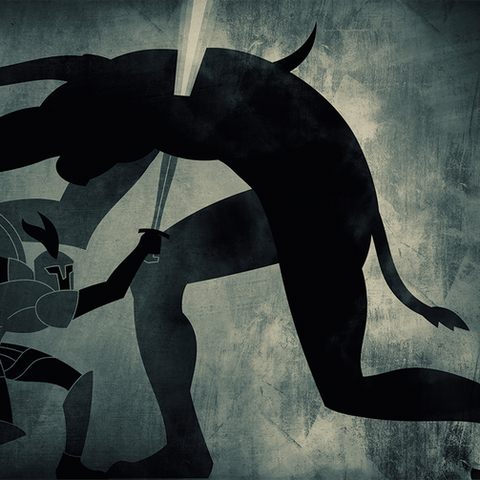
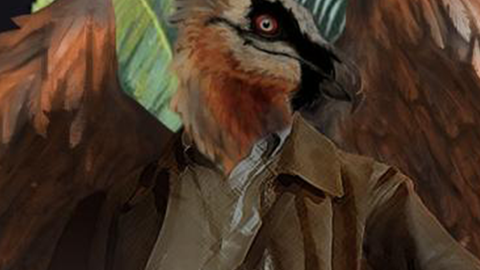


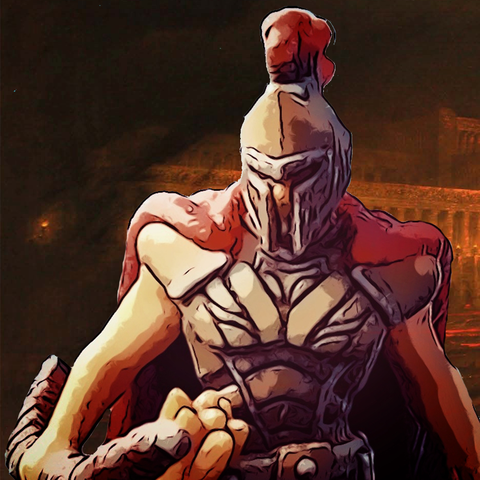
/src/characters/J9mTQausjW2VxE81d6X7hSsFYADStdr8RMx6KuUP.png)
/src/characters/J9mTQausjW2VxE81d6X7hSsFYADStdr8RMx6KuUP.png)
/src/journals/DofpANi2M4QYAjk7dqT9eoJuId30BMonVOCjtlxS.jpeg)
/src/journals/DofpANi2M4QYAjk7dqT9eoJuId30BMonVOCjtlxS.jpeg)
